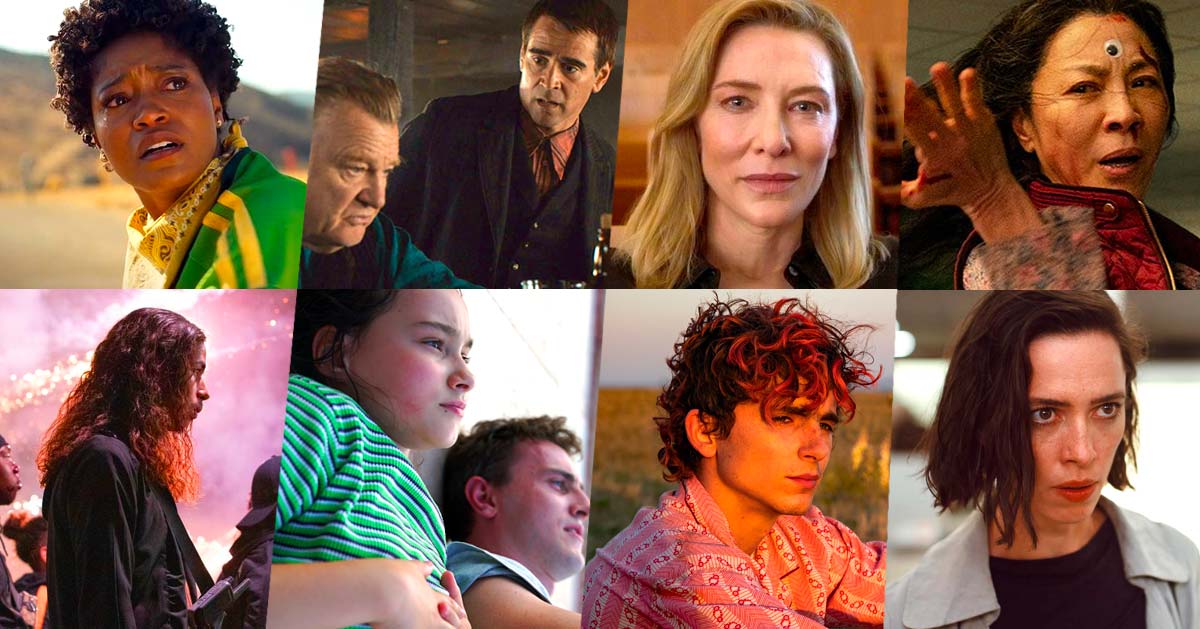20. “Nanny” (Nikyatu Jusu)
Nikyatu Jusu’s “Nanny” cuts a profile that’s equal parts mythological and sociological as it unravels a contemporary yarn of domestic care. This postcard from the frontlines of America’s racial reckoning quickly moves beyond the obvious tensions that arise when the Black immigrant nanny Aisha (Anna Diop) takes on caring responsibilities for a wealthy white New Yorker (Michelle Monaghan). Be it through pointed dialogue exchanges or surrealistic visual metaphors, Jusu captures the full dynamic range of Aisha’s existential crisis of motherhood. Her film is not a sop to the prevailing template of Jordan Peele’s social thriller, either, as she finds the sweet spot between genre thrills and political commentary. “Nanny” is something entirely its own, a terrific tapestry weaving together threads with the simplicity of a fable and the poetry of a psychological character study. – Marshall Shaffer (Our review of “Nanny”)
19. “Decision To Leave” (Park Chan-Wook)
South Korean auteur Park Chan-Wook may have been outshined by his understudy Bong Joon-Ho of late (not that it’s a competition, but an Oscar for Best Picture for “Parasite” is no joke), but the older filmmaker is still arguably making the best films of his career with no foible or end in sight. Starring Tang Wei and Park Hae-il, “Decision To Leave” is essentially a romantic murder mystery thriller about a police detective (Park) investigating a man’s death in the mountains who then becomes enamored with the dead man’s mysterious wife (Tang) in the course of his dogged sleuthing where she becomes a potential suspect. Gloriously and exquisitely rendered with David Fincher-like care and attention to minute detail, “Decision To Leave” is immaculately crafted, a hyper-observed whodunnit with a great sense of meticulously haunted obsession at its center. Aching with desire, filled with a web of deceit, entrapments, and longing, you will pine for all the cleverly constructed twists in this enigmatic gem that honestly put any “Knives Out” mysteries to shame in comparison. – RP (Our review of “Decision to Leave”)
18. “After Yang” (Kogonada)
Kogonada’s directorial debut, “Columbus,” was like a One Perfect Shot masterclass of composition and framing for every moment on screen. The filmmaker relaxes a little bit in his follow-up, “After Yang,” but it’s no less exquisite, observant, and deeply moving. Once again meditating on loss, love, and connection, his latest is a sci-fi-ish drama about a family in the near future grappling and grieving with the loss of their humanoid, seemingly something of a beloved android pet initially, but essentially, in actuality, a child and family member. There’s a terrific cast all around; Haley Lu Richardson, in particular, is superb once again, but it’s Colin Farrell with one of his gentlest, most tender, and delicate performances that really nails the soft, aching beauty of what Kogonada’s trying to achieve. Something of a digital “Tree Of Life” about memory, past lives, ownership, and more, so much humanity and empathy courses through the veins of this superb and sublime movie. – RP (Our review of “After Yang”)
17. “Bones and All” (Luca Guadagnino)
On paper, “Bones and All” has a Blumhouse-Esque gimmicky horror premise: Two young teen cannibals go on a road trip. But in the more-than-capable hands of director Luca Guadagnino, this somewhat silly premise turns into a beautiful, thoughtful, and, yes, sometimes gory love story about hopeless outsiders finding each other. Accompanied by a gorgeous, minimalist score from Trent Reznor and Atticus Ross, Guadagnino’s first American production drips with emotion and soul. But even though the beating heart of the film is in the performances of Taylor Russell and Timothée Chalamet, “Bones and All” doesn’t forget that these two lovers eat the flesh of other humans. And to remind audiences of the horror just underneath the skin of this love story is Mark Rylance, who almost steals the show with what might be the scariest performance of the year. Add in shockingly tense cameos from Michael Stuhlbarg and David Gordon Green (yes, that David Gordon Green), and you get a meaty coming-of-age film that will surprise, delight, and horrify you. Who would have guessed teen cannibals might make you cry in 2022? – Charles Barfield (Our review of “Bones and All”)
16. “Return to Seoul” (Davy Chou)
Davy Chou’s “Return to Seoul,” which is Cambodia’s submission for the 2023 Best International Feature Film Oscar, is an aching character study of displacement and a gentle but heartbreaking pursuit to understanding one’s true story. Our surrogate in this vivid experience is Freddie (Park Ji-Min) who travels to Korea more than two decades after being adopted by French parents. Scene by scene, the uneasy mystery of “Return to Seoul” involves reading the face of Park, who gives a subtle but transformational performance you can’t look away from. Park creates a great deal of tension—within herself, and for the audience—about the weight she carries after meeting her guilt-ridden biological father (Oh Kwang-rok) for the first time, or what’s truly on her mind when the movie jumps to years later, and she’s living a faster, new life, protecting herself in a big, flashy black coat. But no matter the time in which we follow her, she never embraces her birthday. With restrained and confident visual storytelling from Chou that also knows when to throw us into the next chapter in Freddie’s life, “Return to Seoul” is a compelling, elusive film about whether people truly change or if we’re all influenced by roots we’ll never fully understand. – NA (Our review of “Return to Seoul”)





